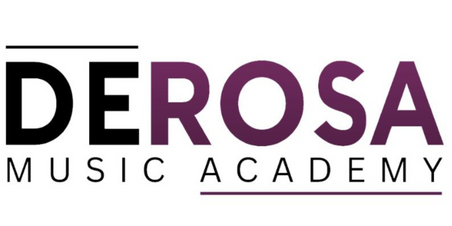Safeguarding and Code of Conduct Policies
SAFEGUARDING AND CODE OF CONDUCT POLICIES
DEROSA SAFEGUARDING CHILDREN & VULNERABLE ADULTS POLICY
Purpose of Policy:
DEROSA is committed to safeguarding all staff, students, peripatetic pupils and visitors. There are policies and procedures in place to achieve this.
This policy sets out how we will actively promote the safeguarding of children* and vulnerable adults**.
The aims of the Policy:
- Establish and maintain an environment where students feel safe, are encouraged to talk, and are listened to when they have a worry or concern.
- Ensure students know who they can approach if they are worried.
- To provide protection for the children or vulnerable adults at DEROSA
- To provide staff with guidance on the procedures they should adopt in the event that they suspect a student may be experiencing, or be at risk of harm.
This Policy is most significant for teaching staff who are particularly well placed to observe students in relation to signs of abuse, harm and changes in behaviour.
In order to protect children and vulnerable adults from harm DEROSA will act in accordance with the following legislation and guidance:
- The Children Act 1989
- The Care Standards Act 2000
- The Education Act 2002
- The Children Act 2004
- Safeguarding Children and Safer Recruitment in Education 2007 (Guidance document)
- Safeguarding Vulnerable Groups Act 2006
- Vetting and Barring Scheme 2009.
- Dealing with Allegations of Abuse Against Teachers and Other Staff (DfE 2011)
- Working Together to Safeguard Children (DfE 2013)
The Policy applies to all directors, staff, students, contractors, and anyone working on behalf of DEROSA.
Safeguarding Children and Safer Recruitment in Education (DfES 2006) also states:
“All parents need to understand that schools and FE colleges have a duty to safeguard and promote the welfare of children who are their pupils or students, that this responsibility necessitates a child protection policy and procedures, and that a school or FE college may need to share information and work in partnership with other agencies when there are concerns about a child’s welfare.”
Statement of Policy
DEROSA recognises that:
- The welfare of children or vulnerable adults is paramount
- All students have the right to equal protection from all types of harm or abuse
- Working in partnership with students and other agencies is essential in promoting a safe learning environment
We will seek to safeguard children or vulnerable adults by:
- Valuing them, listening to them and respecting them
- Actively promoting safeguarding through De Rosa Music (DRM) procedures, a code of conduct and accessible information for staff
- Recruiting staff safely
- Sharing information about concerns with agencies that need it, and involving
students and their parents/carers appropriately
The Role of the Senior Management team
The Senior Management Team at DEROSA has overall responsibility for ensuring that there are sufficient measures in place to safeguard the children in their establishment. A manager is appointed to take lead responsibility in the safeguarding area. This is currently Jon Bliss.
In particular the Senior Management team must ensure:
- Safeguarding policy and procedures are in place
- Safe recruitment procedures are in place
- Keep written records of reported Safeguarding issues and that all records are kept securely
- The appointment of a designated manager who is a member of the senior leadership team to oversee safeguarding within DRM, currently Jon Bliss.
- Relevant safeguarding children training for staff is attended
- Records of safeguarding training to be kept centrally
- Safe management of allegations
- Deficiencies or weaknesses in safeguarding arrangements are remedied without delay
- Safeguarding policies and procedures are reviewed annually
Safe Guarding Policy Review – This policy will be reviewed:
a – following any serious incident involving a pupil or member of staff;
b – following the issue of any new and subsisting guidance from the Department for Education (DfE);
c – in any event, every year.
The review will be carried out by the Designated Manager.
Reviewed December 2022– Next planned review, December 2023.
Appendix
*A child is legally defined as anyone under the age of 18
**No Secrets (2000) defines vulnerability as “any person of 18 or over who is or may be
in need of community care services by reason of mental or other disability, age or illness
and who is, or may be, unable to take care of himself or herself against significant harm
or serious exploitation.”
The Association of Directors of Adult Services safeguarding guidance further defines a
vulnerable adult as someone who is “unable to retain independence, well being and
choice and to access their human right to live a life that is free from abuse and neglect”.
DEROSA Safeguarding Code of Conduct for Students and Teachers
All Derosa staff and tutors who come into contact with children or vulnerable adults in the course of their professional activities with us must adhere to the DEROSA Safeguarding Code of Conduct. The guidelines are in place for both yours and the students protection.
Remember that a student is placed in your trust and it is against the law to abuse that position of trust.
Inappropriate physical contact with children must be avoided. Physical contact is only appropriate in very limited circumstances. Sometimes it may be necessary to have contact with a pupil for simple hand and leg adjustments for posture and technical reasons. When needing to adjust the leg never place your hand above the knee and when adjusting the hand only move the fingers or wrist.
It is not good practice to take children alone in a car on journeys, however short, unless with the prior consent of the child’s parent or guardian, and then only in exceptional circumstances.
Do not make suggestive or inappropriate remarks to or about a child, even in fun, as this could be misinterpreted. Inappropriate remarks include innuendo, swearing, and discussing their or your own intimate relationships. Do not flirt or become overly friendly with a pupil. Maintain clear boundaries at all times
Other than in exceptional circumstances, do not communicate directly with children by email or text messages and only then with the prior consent of the child’s parent or guardian. If electronic communication is necessary best practice would be to communicate directly with parents or guardians. Necessary emails should only be sent via the DEROSA admin team.
Do not share your mobile or home telephone number with a child. The Derosa phone system can always be used to communicate directly with a child’s parent/guardian.
Never communicate with children via Twitter, Facebook or other social media.
Do not engage in behaviour which could be construed as ‘grooming’ a child (for example giving a child money, presents or favours or talking or behaving in an inappropriate or unprofessional manner towards children).
Be aware that it is a criminal offence to have a sexual relationship with a pupil under the age of 18 regardless of consent.
Do take a disclosure of abuse from a child seriously. It is important not to deter children from making a ‘disclosure’ of abuse through fear of not being believed, and to listen to what they have to say. Guidance on responding to an allegation of abuse is set out below.
Always report any concerns immediately to the DEROSA Designated Safeguarding Manager, regarding the conduct of another DEROSA member of staff in relation to children or vulnerable adults.
Remember that those who abuse children can be of any age (even other children), gender, ethnic background or class, and it is important not to allow personal preconceptions about people to prevent appropriate action taking place.
Good practice includes valuing and respecting children as individuals, and the adult modelling of appropriate conduct.
Guidance on responding to a child making an allegation of abuse:
- Stay calm.
- Listen carefully to what is said and show that you are taking it seriously
- Find an appropriate early opportunity to explain that it is likely that the information will need to be shared
- Do not promise to keep secrets
- Tell the child that the matter will only be disclosed to those who need to know about it.
- Allow the child to continue at her/his own pace
- Ask questions for clarification only, and at all times avoid asking questions that suggest a particular answer
- Reassure the child that they have done the right thing in telling you
- Tell them what you will do next, and with whom the information will be shared
- Make no judgement about what you have heard
Remember that whilst you may have been the first person encountering an allegation of abuse it is not your responsibility to decide whether abuse has occurred. That is a task for the professional child protection agencies, following a referral from the Designated Safeguarding Manager at Derosa.
How to report your concerns:
DEROSA tutors and staff may have suspicions or concerns regarding a child or vulnerable adult raised in many ways including:
- The conduct of another tutor, member of staff or adult
- A child ‘disclosing’ abuse
- Bruising or evidence of physical hurt
- Unusual behaviour by a child
The most common examples of the types of concerns that must be reported immediately are:
- Someone has behaved in a way that has harmed a child, or may have harmed a child
- Someone has possibly committed a criminal offence against or related to a child
- Someone has behaved towards a child in a way that indicates s/he is unsuitable to work with children
If a DEROSA tutor has such concerns they should report them immediately to the Designated Safeguarding Manager at the admin desk. They will receive written and dated communication that their concerns have been reported to the relevant agency.

